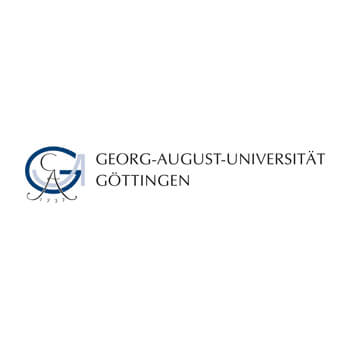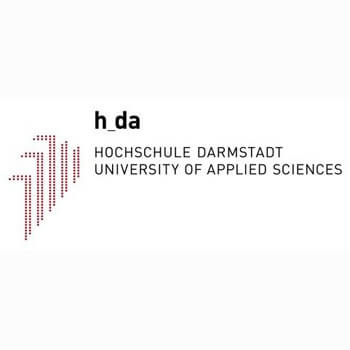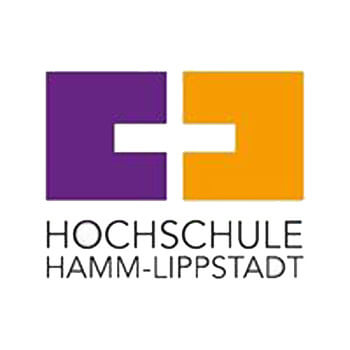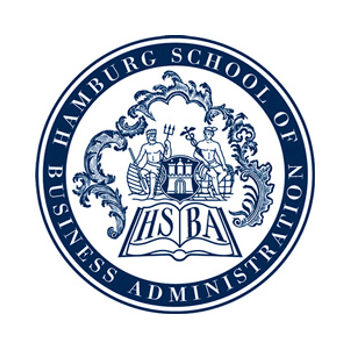University of Gottingen

Founded: 1737
Address: Wilhelmsplatz 1 Aula) - Gottingen, Germany
Phone: +49551 390
Address: Wilhelmsplatz 1 Aula) - Gottingen, Germany
Phone: +49551 390
Here you find out University of Gottingen complete information about fees, location, degree University of Gottingen offers, number, website, and much more. University of Gottingen is a leading university in Gottingen - Germany.
You can also find out jobs at University of Gottingen for students, teachers, and professors. We also update the database for an internship at University of Gottingen for students.
Founded in 1737, Georg-August-Universität Göttingen is a research university of international renown with strong focuses in research-led teaching. The University is distinguished by the rich diversity of its subject spectrum particularly in the humanities, its excellent facilities for the pursuit of scientific research, and the outstanding quality of the areas that define its profile. From 20...07 to 2012 Georg-August-Universität Göttingen was rewarded funding from the Initiative of Excellence of the German Federal and State Governments with its institutional strategy for the future entitled “Göttingen.Tradition – Innovation – Autonomy”. The University was able to realise all measures of the concept. Now Göttingen University will develop the successfully established measures further to continously advance the University’s positive developments in research and teaching.
IN PUBLICA COMMODA - FOR THE GOOD OF ALL reads the inscription on the Foundation Medal of Georg-August-Universität Göttingen. Established in the age of the Enlightenment (1737) and committed to its critical spirit, the "Georgia Augusta" was one of Europe"s first universities to abandon the supremacy of theology and achieve equality for all faculties. Emphasis on basic research and orientation towards source criticism and experimentation proved to be decisive preconditions for the development of the modern humanities and natural sciences, a development strongly influenced by the Georgia Augusta.
The history of Georg-August-Universität Göttingen has to this day been characterised by scholarly pragmatism and a sense of reality as well as keen awareness for science"s societal responsibility. This tradition embraces the contributions of the "Göttinger Sieben" (1837) and those of Max Born, Otto Hahn, Werner Heisenberg and Carl Friedrich von Weizsäcker, who initiated the "Göttinger Erklärung" (1957) calling for the abandonment of nuclear weapons of every description. It is in this tradition that the Georgia Augusta today defines itself and its mission. Remembering the darkest chapter of its history during the period of National Socialism, the University is committed to utilising its strengths in shaping a humane, tolerant and peaceful world.
On the basis of its achievements in research and teaching, Georg-August-Universität Göttingen seeks to heighten its international reputation by concentrating on its special strengths.
Internationality - enhancing its ability to attract scientists, scholars and students from abroad; expansion of international networks and partnerships for fostering research and young scientists.
Research-based teaching and learning - development of research-related study programmes and occupationally-orientated training and further education courses, graduate schools, and junior research groups in which young scholars and scientists conduct independent research.
Interdisciplinarity and diversity - intensifying the collaboration between the humanities and the social, natural and life sciences, and preservation of subject diversity in the interests of problem-solving to shape the future.
Autonomy - strengthening the self-responsibility of the University as a Public Law Foundation, including also that of its boards, faculties and institutions
Cooperation with non-university institutions - extending and institutionalising the collaboration with appropriate research establishments in science, commerce and the community.
The University pledges its commitment to peace and justice in the world. The University and the academics working therein strive to serve peace in the world through research and teaching. In responsibility for society, they undertake to uphold in their actions the intrinsic ethical principles of science and scholarship.
The University of Göttingen has a strong research basis, maintaining high standards in research and teaching and a top-level international reputation. In order to safeguard this status and to build on it for the long term, the University, together with its partners on the Göttingen Campus, places particular emphasis on innovation and enhancement of profile, fostering young-generation academics, and expanding research and information infrastructure.
Göttingen"s vibrant research and teaching environment attracts excellent scientists and scholars from within Germany and abroad. Significant factors are the interdisciplinary research conducted on innovative research topics and the optimal support provided for up-and-coming young researchers, making it possible for the University to retain excellent young scientists and scholars who have trained here, or to send them out into the world as ambassadors. Göttingen University ensures that its researchers and lecturers have the time and space required for creative work by gearing its administration, advisory support and services specifically to the needs of academics, and providing family-friendly working and living conditions. In addition, the Göttingen Campus makes available the necessary research and information infrastructure to facilitate outstanding performance in science and scholarship over the long-term.
Göttingen University and its partners on the Göttingen Campus pursue the research-based teaching approach. The University seeks to provide its students with wide-ranging methodological knowledge, develop their capacity for analytical thought, and grant them space for creativity. It also supports student mobility, and is pressing ahead with the internationalisation of all curricula.
The founding of Göttingen University took place at the instance of the local ruler Elector George Augustus of Hanover (who was at the same time the King of Great Britain as George II due to the personal union with Great Britain and Ireland from 1714), after whom the University was named. The actual "spiritus rector" (guiding spirit) of this new foundation was Hanover Minister Gerlach Adolph Baron of Münchhausen who created a new type of university: the Georgia Augusta served the goals of enlightenment even more consistently than Halle University, which was only a few decades older. Accordingly, scientific research was freed from censorship by the church (Münchhausen as the representative of the Elector however reserved for himself the right of censorship), and at the same time academic teaching was given high priority. The library, which was systematically sponsored and developed, was open to the students as well – which was a shocking innovation at the time; for emerging and seminal scientific disciplines, Münchhausen created new professorships to which he systematically appointed outstanding representatives of their subjects. Lectures at the University commenced in 1734, and the official inauguration took place in the presence of Münchhausen in 1737.
You can also find out jobs at University of Gottingen for students, teachers, and professors. We also update the database for an internship at University of Gottingen for students.
Founded in 1737, Georg-August-Universität Göttingen is a research university of international renown with strong focuses in research-led teaching. The University is distinguished by the rich diversity of its subject spectrum particularly in the humanities, its excellent facilities for the pursuit of scientific research, and the outstanding quality of the areas that define its profile. From 20...07 to 2012 Georg-August-Universität Göttingen was rewarded funding from the Initiative of Excellence of the German Federal and State Governments with its institutional strategy for the future entitled “Göttingen.Tradition – Innovation – Autonomy”. The University was able to realise all measures of the concept. Now Göttingen University will develop the successfully established measures further to continously advance the University’s positive developments in research and teaching.
IN PUBLICA COMMODA - FOR THE GOOD OF ALL reads the inscription on the Foundation Medal of Georg-August-Universität Göttingen. Established in the age of the Enlightenment (1737) and committed to its critical spirit, the "Georgia Augusta" was one of Europe"s first universities to abandon the supremacy of theology and achieve equality for all faculties. Emphasis on basic research and orientation towards source criticism and experimentation proved to be decisive preconditions for the development of the modern humanities and natural sciences, a development strongly influenced by the Georgia Augusta.
The history of Georg-August-Universität Göttingen has to this day been characterised by scholarly pragmatism and a sense of reality as well as keen awareness for science"s societal responsibility. This tradition embraces the contributions of the "Göttinger Sieben" (1837) and those of Max Born, Otto Hahn, Werner Heisenberg and Carl Friedrich von Weizsäcker, who initiated the "Göttinger Erklärung" (1957) calling for the abandonment of nuclear weapons of every description. It is in this tradition that the Georgia Augusta today defines itself and its mission. Remembering the darkest chapter of its history during the period of National Socialism, the University is committed to utilising its strengths in shaping a humane, tolerant and peaceful world.
On the basis of its achievements in research and teaching, Georg-August-Universität Göttingen seeks to heighten its international reputation by concentrating on its special strengths.
Internationality - enhancing its ability to attract scientists, scholars and students from abroad; expansion of international networks and partnerships for fostering research and young scientists.
Research-based teaching and learning - development of research-related study programmes and occupationally-orientated training and further education courses, graduate schools, and junior research groups in which young scholars and scientists conduct independent research.
Interdisciplinarity and diversity - intensifying the collaboration between the humanities and the social, natural and life sciences, and preservation of subject diversity in the interests of problem-solving to shape the future.
Autonomy - strengthening the self-responsibility of the University as a Public Law Foundation, including also that of its boards, faculties and institutions
Cooperation with non-university institutions - extending and institutionalising the collaboration with appropriate research establishments in science, commerce and the community.
The University pledges its commitment to peace and justice in the world. The University and the academics working therein strive to serve peace in the world through research and teaching. In responsibility for society, they undertake to uphold in their actions the intrinsic ethical principles of science and scholarship.
The University of Göttingen has a strong research basis, maintaining high standards in research and teaching and a top-level international reputation. In order to safeguard this status and to build on it for the long term, the University, together with its partners on the Göttingen Campus, places particular emphasis on innovation and enhancement of profile, fostering young-generation academics, and expanding research and information infrastructure.
Göttingen"s vibrant research and teaching environment attracts excellent scientists and scholars from within Germany and abroad. Significant factors are the interdisciplinary research conducted on innovative research topics and the optimal support provided for up-and-coming young researchers, making it possible for the University to retain excellent young scientists and scholars who have trained here, or to send them out into the world as ambassadors. Göttingen University ensures that its researchers and lecturers have the time and space required for creative work by gearing its administration, advisory support and services specifically to the needs of academics, and providing family-friendly working and living conditions. In addition, the Göttingen Campus makes available the necessary research and information infrastructure to facilitate outstanding performance in science and scholarship over the long-term.
Göttingen University and its partners on the Göttingen Campus pursue the research-based teaching approach. The University seeks to provide its students with wide-ranging methodological knowledge, develop their capacity for analytical thought, and grant them space for creativity. It also supports student mobility, and is pressing ahead with the internationalisation of all curricula.
The founding of Göttingen University took place at the instance of the local ruler Elector George Augustus of Hanover (who was at the same time the King of Great Britain as George II due to the personal union with Great Britain and Ireland from 1714), after whom the University was named. The actual "spiritus rector" (guiding spirit) of this new foundation was Hanover Minister Gerlach Adolph Baron of Münchhausen who created a new type of university: the Georgia Augusta served the goals of enlightenment even more consistently than Halle University, which was only a few decades older. Accordingly, scientific research was freed from censorship by the church (Münchhausen as the representative of the Elector however reserved for himself the right of censorship), and at the same time academic teaching was given high priority. The library, which was systematically sponsored and developed, was open to the students as well – which was a shocking innovation at the time; for emerging and seminal scientific disciplines, Münchhausen created new professorships to which he systematically appointed outstanding representatives of their subjects. Lectures at the University commenced in 1734, and the official inauguration took place in the presence of Münchhausen in 1737.
Read More
Details:
LeaderShip:
Fees:
Time:
Phone Number: +49551 390
City: Gottingen
Fees:
Time:
Phone Number: +49551 390
City: Gottingen
Timing:
Country: Germany
Staff: 12438
Website: http://www.uni-goettingen.de
Country: Germany
Staff: 12438
Website: http://www.uni-goettingen.de
Subjects:
Jobs in University of Gottingen
Currently, there is no job opening in University of Gottingen as per our database.



















Leave a Reply